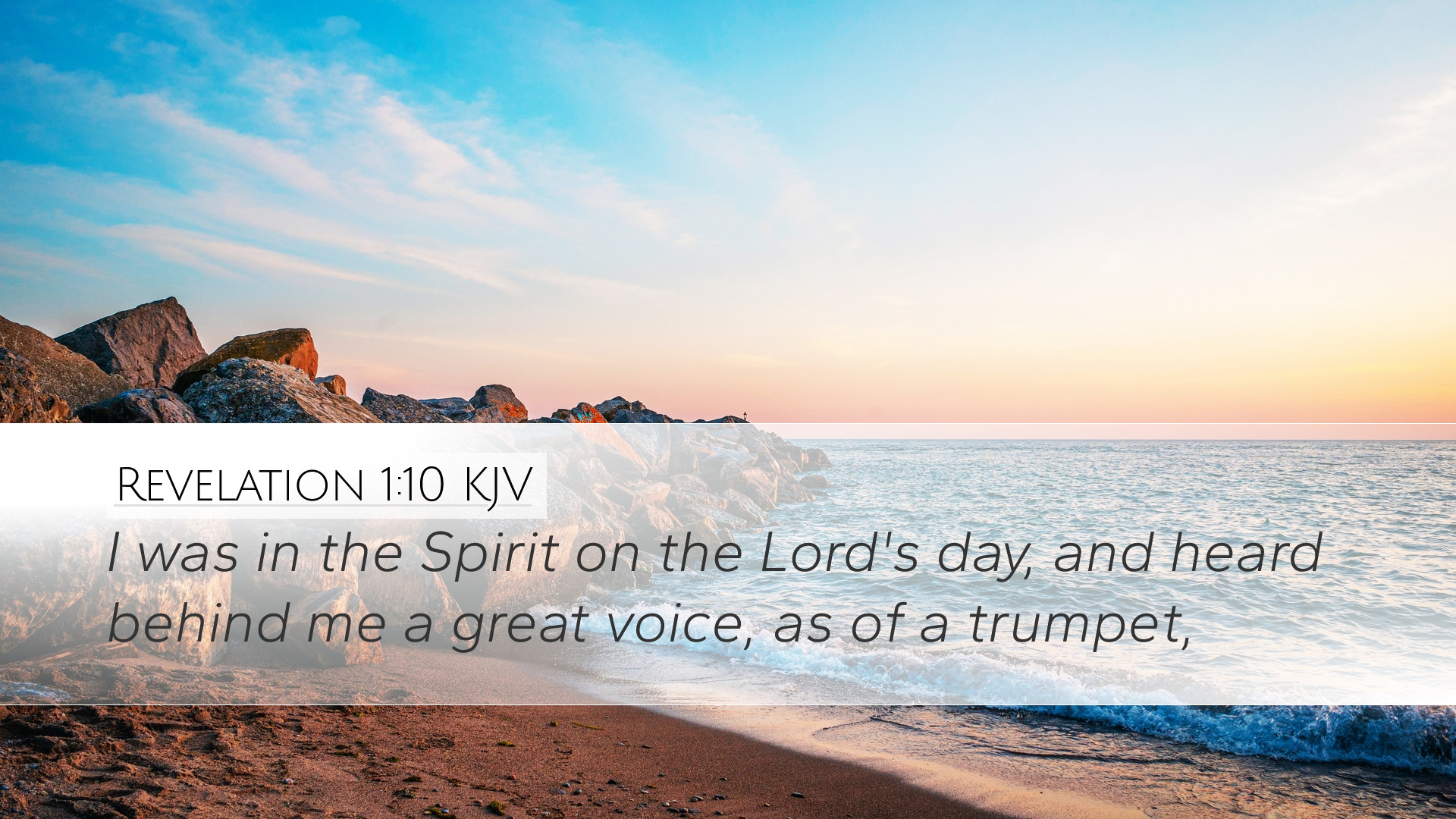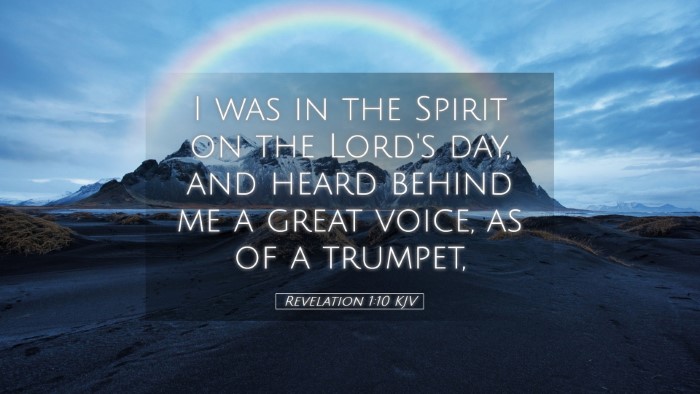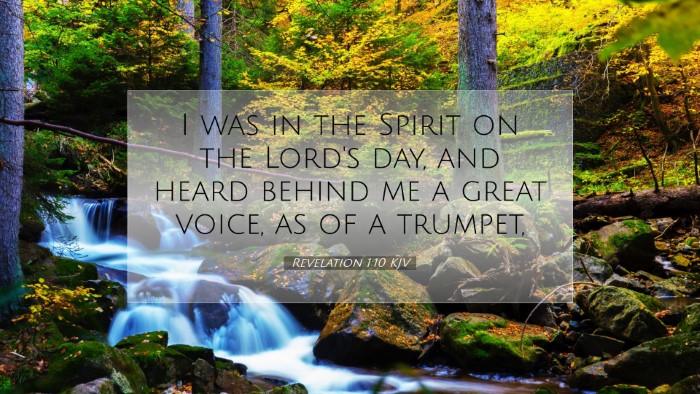Commentary on Revelation 1:10
Verse: "I was in the Spirit on the Lord's day, and heard behind me a great voice, as of a trumpet."
Introduction
The verse Revelation 1:10 serves as a pivotal moment in the Book of Revelation, establishing the context for the prophetic revelations to follow. It provides insights into the nature of John’s prophetic experience and the theological implications of being "in the Spirit." This commentary synthesizes perspectives from noted public domain commentaries, particularly those of Matthew Henry, Albert Barnes, and Adam Clarke.
Overview of the Verse
The phrase "I was in the Spirit" indicates a transcendent experience, suggesting a state of heightened spiritual perception or divine influence. The "Lord’s day" is interpreted by many as the day of Christian worship, likely Sunday, reflecting both a historical context and prophetic significance. The "great voice, as of a trumpet," indicates a divine announcement that commands attention, reminiscent of Old Testament theophanies.
Exegesis of Key Phrases
-
"I was in the Spirit"
Matthew Henry emphasizes this state of being as essential for receiving divine revelation. It implies a complete surrender to the Holy Spirit, where the natural mind is transcended, enabling spiritual insight. Adam Clarke notes the importance of this phrase, indicating that divine matters can only be grasped when one is in a divinely inspired state, suggesting that human understanding is inadequate without the Spirit's influence.
-
"on the Lord’s day"
Albert Barnes interprets "the Lord’s day" as Sunday, the Christian Sabbath, underscoring the early church's practice of setting aside this day for worship and reflection on the resurrection of Christ. This provides an element of continuity between Jewish traditions and the early Christian community, reflecting their distinct identity. Henry further suggests that this day of rest was transformed by the resurrection, offering a reminder of hope and renewal.
-
"great voice, as of a trumpet"
The image of the voice as a trumpet implies clarity, authority, and urgency. Henry points out that trumpets are often associated with proclamations and divine messages in Scripture, evoking images from Exodus and the calling of God's people. Clarke adds that the trumpet sound signifies the importance of the message that follows, alerting God's people to listen and be prepared for significant revelations.
Theological Implications
The theological significance of this verse lies in its implications for worship and revelation. Being "in the Spirit" reflects the necessity of divine partnership in understanding God’s will, which is central to Christian theology. The "Lord’s day" serves as a weekly reminder of God's sovereignty and grace, establishing a rhythm of worship and reflection that is integral to Christian life. Moreover, the voice of God calling as a trumpet highlights the urgency of responding to divine revelation, a thematic cornerstone of the Book of Revelation.
Practical Applications
For pastors and theologians, Revelation 1:10 invites deeper consideration of worship practices. It suggests that true worship must be grounded in spiritual awareness and sensitivity to the Spirit's leading. Additionally, it encourages congregations to view Sundays, not merely as a day of attendance, but as an opportunity to be "in the Spirit," fostering an environment where divine communication is expected and received.
Conclusion
Revelation 1:10 serves as a profound reminder of the significance of spiritual openness to God’s revelations. Through the insights gathered from Matthew Henry, Albert Barnes, and Adam Clarke, it is clear that this text is not merely historical but continues to resonate with contemporary worship practices. It challenges believers to maintain a posture of readiness and receptivity to divine communication, especially within the sacred spaces of Christian life.


